The Amazon city of Manaus has been grappling for weeks with a horror that the rest of Brazil has partially ignored at the advice of their President, Jair Bolsonaro.
It’s unclear how coronavirus – what Bolsonaro called a “little flu” – made it to this remote place in the Amazon. It tore through the rich areas, and then moved on to the poorer. Now it is hitting the indigenous communities that live in the suburbs and slums.
Here are some of the people we met recently and their stories.
Flights of mercy
The doors on each side of the plane gape open, as hazmat-suited medics clamber inside to reach the seriously ill patients, hurrying them into an ambulance. Manaus is not a city that you want to be rescued to – it’s the hardest-hit city in Brazil from coronavirus – yet it still offers hope for the most acutely ill across the Amazon area.
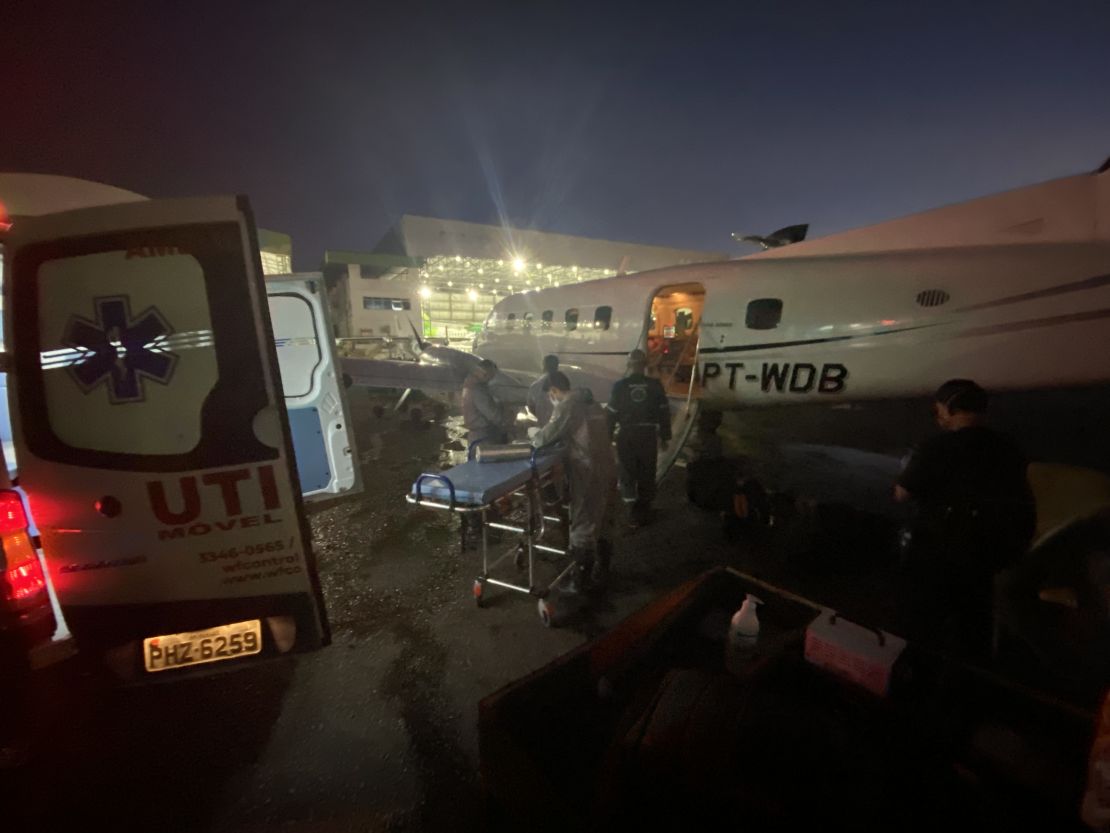
This flight brought two people from down the river in Parintins, a city with a population of just over 100,000 about 230 miles (370 km) away. They need the medical care Manaus can provide. One of the patients, a man, is able to move himself with the help from medics onto a stretcher. The only motion from the other patient, a woman, is the slow heave of her chest.
Waiting ambulances take the two away. The crew begin cleaning and refurbishing the plane. This team never lost a patient in flight, although they have had to intubate one midair.
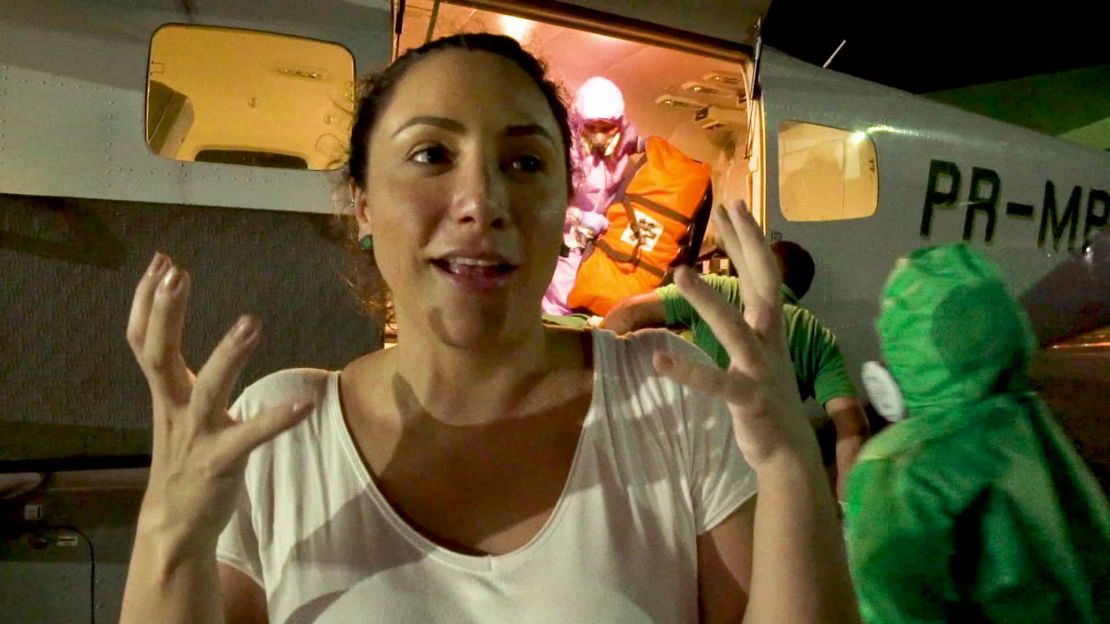
Dr. Selma Haddad climbs out of her protective clothing on the tarmac and inhales. “It’s very hard. You carry a weight that you don’t see. Every time I carry this weight.”
Constant stream of grief
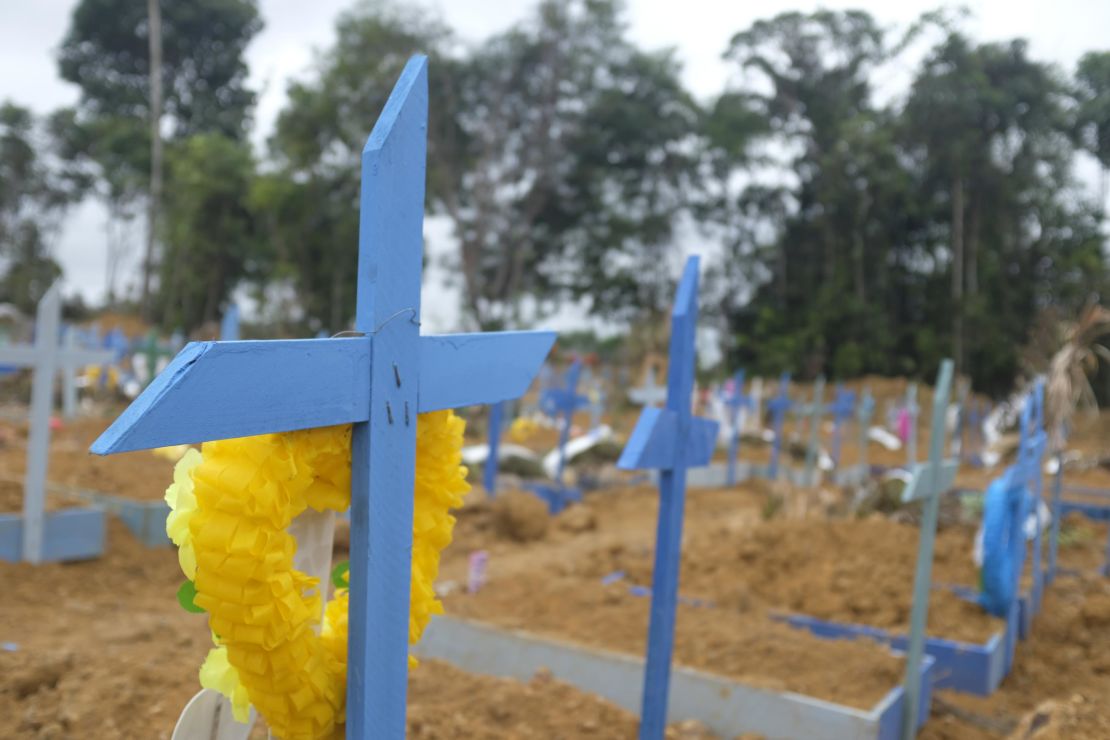
At the Parque Taruma Cemetery, more than 1,500 graves have been dug since the pandemic came to the Amazon. Men and heavy machinery sometimes work at night to meet the demand, opening up large trenches as mass graves.
Five coffins that arrive in just two hours get placed in a group grave.
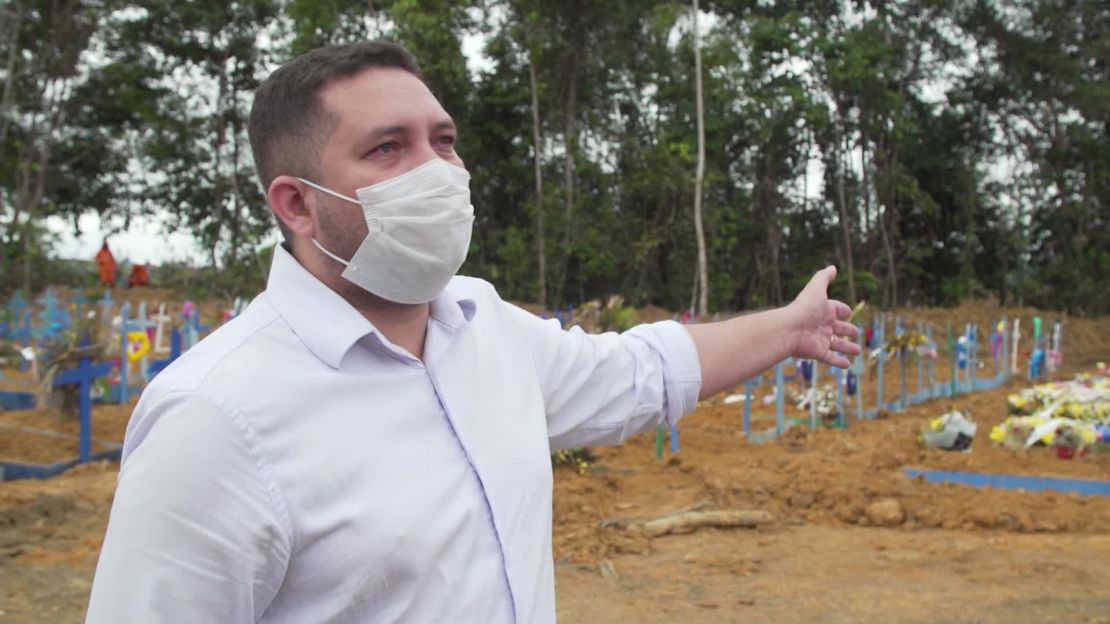
Standing in mourning for his mother is Pedro Chaves, angry that he has to wait for the trench to be full before the coffin is covered. “We are here around 30 minutes waiting for more bodies,” he says. “I just want to put my Mum there and finish this. My family doesn’t need this.”
Chaves says his mother died from complications of diabetes, not the virus. Others say Covid-19 was not to blame for their losses. With so little testing, it is impossible to know for sure.
As a constant parade of angry, grief-stricken locals passes through the cemetery, workers sit in a corner, hammering makeshift crosses and grave boundaries together in the Amazonian humidity.
Indigenous people pack field hospital
Across town, at the newly built Gilberto Novaes field hospital, a stream of new patients arrives. A dozen indigenous people from the outer limits of the city stagger breathless from the ambulances into wheelchairs and straight to the ICU.
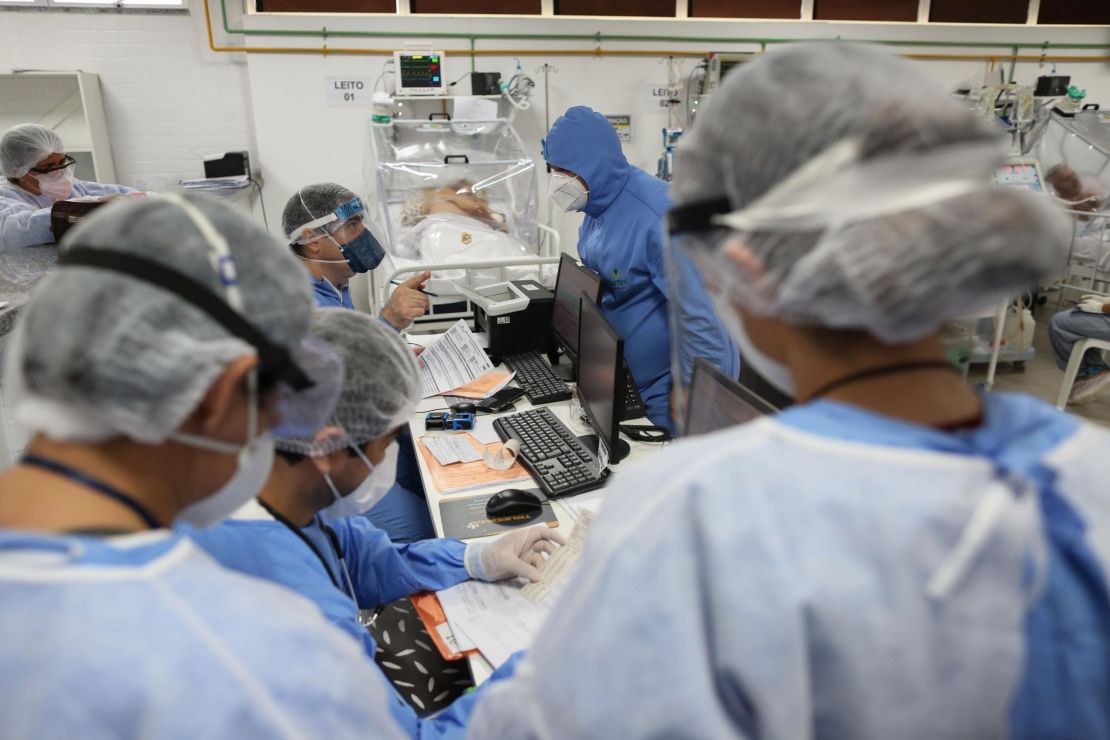
The ICU is frenetic, packed with the sick and those trying to save them.
Circulating among the beds is Miqueias Moreira Kokama, the head of the Kokama indigenous community. He was appointed just two weeks ago when his father died from coronavirus.
In pictures: Coronavirus surges in Brazil
“I took my father into hospital where he was intubated for 5 days,” he says. “Now we have 300 with symptoms and 30 in hospital.”
Deathly quiet in the slums
In the Kokama community itself, the virus has emptied the streets. Resident Vanda Ortega Witoto points at each house on one road, ticking off the families that are now self-isolating.
At the next street, she explains that the deathly silence stems from everyone being in hospital.
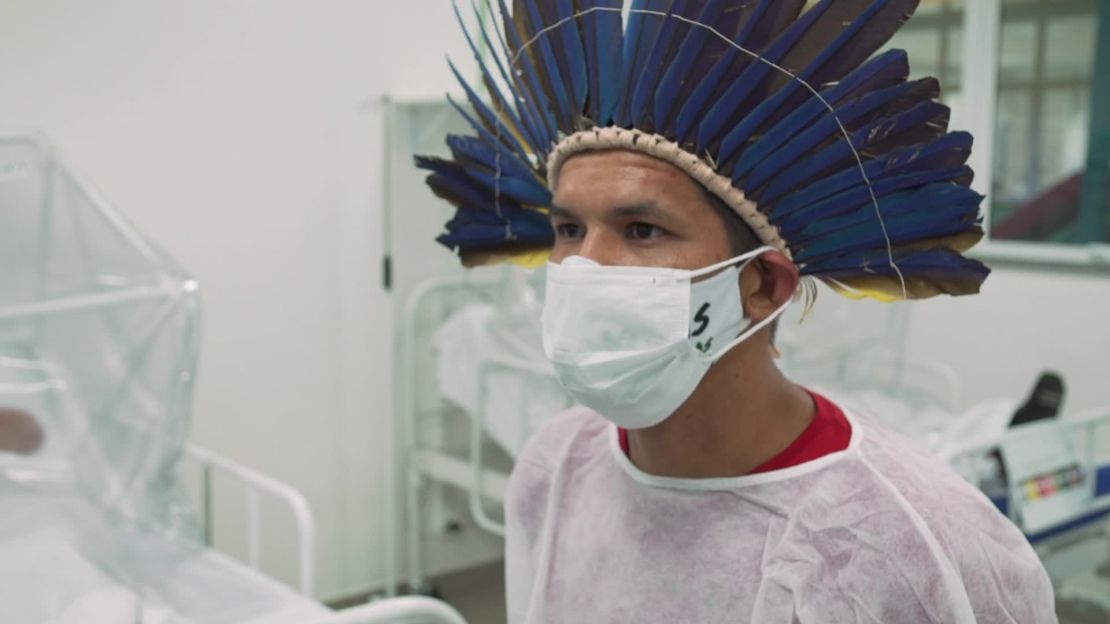
At first they felt their distance from the city gave them protection. But then the first symptoms appeared and the slum’s poor sanitation helped the virus take hold.
Yet help did not come, Witoto says, with local officials saying it was the duty of the federal government to help the indigenous people and the federal government doing nothing.
So when a relative was coughing, in pain and unable to get out from a hammock, she donned a mask and gloves to drive them herself to the hospital. “It was a very difficult moment, to expose myself and seek help for her.”
The Kokama feel doubly under threat, from the pandemic and the actions of the government whom they accuse of threatening their very existence.
Witito says Bolsonaro “has been behaving in this pandemic by attacking our territory, expelling the indigenous people from their territories and opening our lands to agribusiness.”
At the end of the day, a moment of hope warms the community. Witoto’s mother, Brazileia Martiniano Barrozo, has been released from the hospital and returns to streets now echoing with celebratory fireworks and cheers from neighbors.
A city caught by the President’s rhetoric

Manaus Mayor Arthur Virgilio Neto isn’t just fighting the spread of Covid-19, he’s also caught in a row with President Bolsonaro who called him a “piece of sh**” in a cabinet meeting, the recording of which the Supreme Court released last week.
Virgilio Neto told us he felt Bolsonaro’s “dream is to be a dictatorship but he’s too stupid.”
He added the President should “shut up and stay at home,” and was partially responsible for Brazil’s rising death toll because of the way he had dismissed the danger as a “little flu.”

